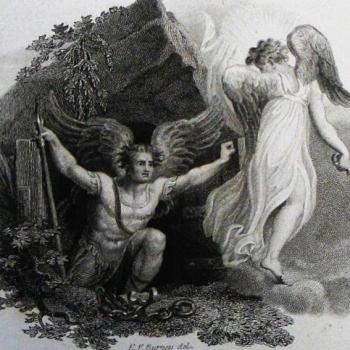
Before we start looking at the four main views of eschatology (as there are many subdivisions, far too many to address for our brief purposes), and before we take a look at some of the differences between these primary views, it is vitally important that we are all on the same page as far as knowing what beliefs all Christian views on eschatology hold in common in order to be considered orthodox. Of course there are areas in eschatology that Christians will continue to debate until Christ returns. However, there are some beliefs that must be adhered to if one is truly to be labeled Christian.
First, Scripture forces all Christians to believe in the visible and bodily return of Jesus Christ. Second, Scriptures attest to the fact that there will be a resurrection of all people from all time. Third, there will be a judgment of all people from all time. Every view of eschatology that we will be looking at hold these beliefs.
Dispensational Premillennialism
Compared to the other three primary eschatological views, dispensationalism is historically a recent doctrine. The details and summation of this view were first introduced by John Nelson Darby, a disillusioned Anglican priest who became a leader in the Plymouth Brethren group in England around 1830. In fact, his take on eschatology caused a division among the Plymouth Brethren group.

Dispensationalism really hit its stride when it was popularized by the well known Scofield Reference Bible and it is currently the most adhered to eschatological position in the United States.
Dispensationalism’s main principle is that the history of humanity is divided up into different periods (or dispensations), and God deals with humanity on the basis of some particular principle for each dispensation. It should be said that not all dispensationalists agree on how many dispensations there are.
CHARACTERISTIC BELIEFS:
- The promises in Scripture made to Abraham and David are unconditional promises and are in no way promises made to, or fulfilled by, the Church.
- God has completely separate plans for the Church and Israel.
- The church is barely, if even at all, seen in the OT prophetic works.
- Jesus Christ came to offer a literal, earthly kingdom to Israel and the Jews.
- However, the Jews rejected this offer from God and are guilty of having Jesus crucified.
- Jesus Christ will come again to “rapture” the Church and to establish the earthly kingdom that was promised to Israel.
- The second coming happens in two stages (MacArthur, p.87).
- First the “rapture” happens, when Christ comes “for” the saints and they are caught up to meet Him in the air (Ibid.).
- Second, Jesus’ returns to earth and when He does He comes “with” His saints,
- also referred to as “The Appearing” (Ibid.).
- In between these two events they place Daniel’s 70th week – the seven years known as the Tribulation (Ibid.).
- There are at least three resurrections within this view: believers before the millennium (at the rapture), unbelievers after the millennium, and of the “tribulation saints” (those who become believers during the tribulation).
Historic Premillennialism
CHARACTERISTIC BELIEFS:
- Old Testament prophecy clearly has portions foreseeing the Church, which is in direct opposition to dispensationalism.
- The reason for the first coming of Christ was to die for the sins of humanity and not to set up an earthly kingdom for the Jews, also In opposition to dispensationalism.
- The Second Coming of Christ will be just a single event, which is in opposition to the the two stages of His coming that dispensationalism speaks of (coming for the saints and the coming with the saints).
- Christ’s return will happen before the millennium, which is in agreement with dispensationalism.
- The Church will have to go through the tribulation period (Mt. 24:3-22), which is in direct opposition to dispensationalism.
- There will be two resurrections – those who are Christ-followers before the millennium, and those who have rejected Christ after the millennium. Another distinction from dispensationalism.
Amillennialism
CHARACTERISTIC BELIEFS:
- The New Testament church is the true, spiritual Israel of God (Gal.6:16).
- Satan was bound, or limited, to a large degree during the earthly ministry of Jesus, keeping him restrained as the gospel was being preached to the world (Mt. 12:29; Lk. 10:18, 19).
- The Kingdom of God is a reality that is in operation today due to the fact Christ was, and is, victorious and is ruling His “subjects” by His Word and by the Spirit of God (Lk. 17:20, 21).
- The Kingdom of God is redemptive and spiritual in nautre and not political and literally physical (Jn. 18:36).
- The millennium, as well as the “first resurrection” found in Rev. 20:4-6, describes the current reign of the souls of those believers who have died and are with Christ in heaven.
- The millennium is the time frame between the two comings of Christ, or to phrase it more definitively, between the return of the “ascended Son to glory, his mission to earth completed, and the loosing of Satan ‘for a little while'” (Hughes).
- In opposition to the postmillennial view, amillennialists do not believe that the Scripture predicts some sort of golden age eutopia in the world before Christ returns.
- Both good and evil forces will progressively mature (Mt. 13:24-30, 37-43, 47-50), which agrees with premillennialism.
- A time of severe apostasy will occur right before the return of Christ (Rev. 20:7, 8).
- Some amillennialists do believe the above mentioned apostasy will be led by “the Antichrist,” but the majority of amillennialists, pointing out that the word “antichrist” is not even mentioned in Revelation, believe that the “Beast” of Revelation was actually a contemporary of the apostle John (Rev. 13:11-18).
- Even though the kingdom of God is viewed as a current reality, amillennialists also look forward to a “future, glorious, kingdom that is perfected for eternity at the return of Christ” (Anthony Hoekma).
- When Christ returns He will resurrect everyone at the same time (Jn. 5:25-30).
- The general judgment and rewards will follow the resurrection mentioned above.
- Christ will create a new heaven and new earth in perfect condition which will endure for eternity, often referred to as the eternal kingdom.
Postmillennialism
CHARACTERISTIC BELIEFS:
- The New Testament church is the true, spiritual Israel of God (Gal.6:16), which agrees with amillennialism.
- The Kingdom of God is in operation today, which is in agreement with amillennialism.
- The Kingdom of God is redemptive and spiritual in nautre and not political and literally physical (Jn. 18:36), agreeing with amillennialism.
- A gradual victory of authentic Christianity through the Holy Spirit will take place before the return of Christ, which is in opposition to amillennialism.
- The millennial period will close at the time of Christ’s second coming, which is in agreement with amillennialism.
- When Christ returns He will resurrect everyone at the same time (Jn. 5:25-30), agreeing with amillennialism.
- The general judgment and rewards will follow the resurrection mentioned above, also agreeing with amillennialism.
- Christ will create a new heaven and new earth in perfect condition which will endure for eternity, often referred to as the eternal kingdom, another agreement with amillennialism.
Also In This Series
- A Look at Eschatology: Why Study The End Times?
- A Look at Eschatology: An Overview of Each Position
- A Look at Eschatology: The Book of Revelation, The Antichrist, and a Conclusion
This was a guest post from Dr. Jeff Hagan.
Jeff is an ordained Christian minister with over 23 years of ministry experience. He has attended Gordon-Conwell Theological Seminary, Luther Rice Seminary, Tyndale Seminary and a handful of other institutes as well. He has earned several degrees including the Doctor of Christian Education and the Doctor of Theology.











